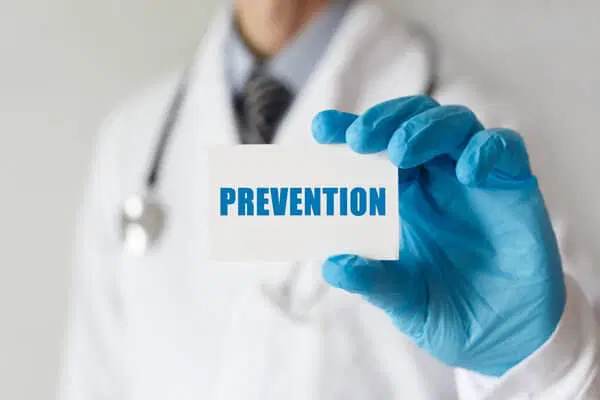The Importance of Regular Vaccinations for Adults
When most people think about vaccinations, they often associate them with childhood. However, regular vaccinations are equally important for adults to maintain health, prevent disease, and protect both themselves and the community. Adult vaccination is a critical aspect of preventive healthcare that can safeguard against a variety of infectious diseases that may otherwise lead to severe illness, hospitalization, or even death.
Here’s why regular vaccinations for adults are vital, and which vaccines you should consider.
1. Strengthening Immunity as We Age
As we grow older, our immune system naturally weakens, making us more susceptible to infections. Vaccines help “boost” our immunity by preparing the body to fight off harmful pathogens before they can cause illness. Diseases such as influenza, pneumonia, and shingles are more common and more severe in older adults, making regular vaccination crucial.
Key Vaccines:
- Flu vaccine: The flu shot is recommended annually, especially for adults over 65, as influenza can lead to complications like pneumonia or even heart attacks.
- Shingles vaccine: Adults over 50 should get the shingles vaccine, as the virus can cause painful, long-lasting rashes and nerve pain.
2. Preventing the Spread of Infectious Diseases
Vaccinations not only protect the individual but also help safeguard the community by preventing the spread of contagious diseases. This is especially important for people who cannot get vaccinated, such as those with weakened immune systems, certain allergies, or underlying medical conditions.
By keeping your own vaccinations up-to-date, you contribute to herd immunity, a form of community protection that reduces the spread of disease, especially to vulnerable populations.
Key Vaccines:
- COVID-19 vaccine: Regular boosters are important to protect against severe illness, particularly as new variants emerge.
- Pertussis (Whooping Cough) vaccine: Adults should receive a booster every 10 years, especially those in contact with infants, as whooping cough can be deadly for babies.
3. Protecting Against Chronic Disease Complications
Certain infectious diseases, such as the flu or pneumonia, can lead to dangerous complications in people with chronic conditions like heart disease, diabetes, or respiratory disorders. Vaccines act as a shield against these complications, improving overall health and reducing the likelihood of serious health issues.
For example, adults with diabetes are more prone to infections due to weakened immune responses, making vaccines like the pneumococcal vaccine essential to prevent complications like pneumonia and bloodstream infections.
Key Vaccines:
- Pneumococcal vaccine: Recommended for adults over 65 or younger adults with chronic conditions.
- Hepatitis B vaccine: Important for those with diabetes or chronic liver conditions, as it prevents liver infections that can lead to long-term damage.
4. Travel Protection
If you’re planning to travel internationally, vaccines become especially important. Diseases that may not be common in your home country can pose serious risks in other regions. Travel vaccines protect you from infections such as yellow fever, typhoid, and cholera, which may be prevalent in certain parts of the world.
Before traveling, consult a healthcare provider to determine the necessary vaccines based on your destination.
Key Vaccines:
- Yellow fever vaccine: Required for travel to certain countries in Africa and South America.
- Typhoid vaccine: Important for travel to areas where typhoid fever is common, particularly in Asia and Africa.
5. Staying Up-to-Date with Booster Shots
Even if you were fully vaccinated as a child, some vaccines require booster shots as an adult to maintain immunity. Booster shots strengthen your immune system and provide ongoing protection against diseases that may resurface later in life.
Key Vaccines:
- Tetanus, Diphtheria, and Pertussis (Tdap) vaccine: A booster shot is recommended every 10 years to protect against these potentially serious infections.
- Meningococcal vaccine: Booster doses are recommended for adults at increased risk of meningitis, including those living in crowded environments or traveling to certain areas.
6. Guarding Against New and Emerging Diseases
As seen with the COVID-19 pandemic, new diseases can emerge and spread rapidly. Vaccines play a crucial role in protecting individuals and curbing the spread of infectious diseases during outbreaks. Staying informed about new vaccines and getting immunized when recommended can prevent the widespread impact of emerging pathogens.
For instance, during flu season or outbreaks of diseases like measles or mumps, adults who maintain up-to-date vaccinations help reduce the burden on healthcare systems and protect others in the community.
Conclusion: Vaccination is a Lifelong Responsibility
Regular vaccinations for adults are a critical part of staying healthy and preventing serious illnesses. Vaccines provide long-lasting protection, reduce the risk of complications, and prevent the spread of diseases to others. Whether it’s getting your annual flu shot or ensuring you’re protected against newer threats like COVID-19, staying current on vaccines is essential to living a healthy life.
At Copious Health Services, we offer comprehensive vaccination services to help you stay up-to-date with the recommended immunizations for your age, health status, and lifestyle. Schedule your vaccination appointment with us today and take a proactive step in safeguarding your health.



